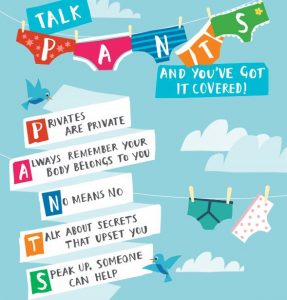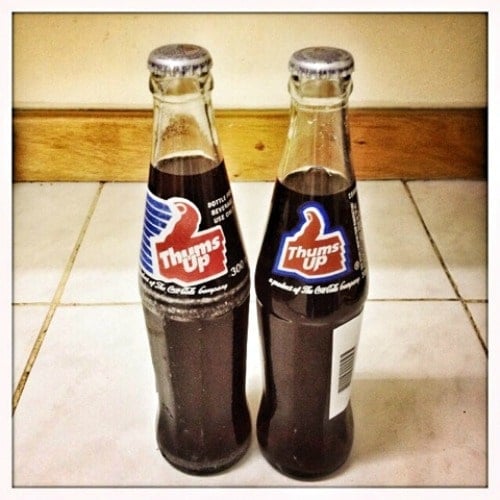
by World Moms Blog | May 10, 2014 | 2014, Education, Girls, Government, Human Rights, Humanitarian, International, Nigeria, School, Social Equality, Social Good, Social Media, Women's Rights, World Moms Blog
Abducted. Scared. Abused.
Sold.
That’s the likely fate 276 girls are facing, taken from their schools in the remote reaches of north-eastern Nigeria by the terrorist group Boko Haram. It’s been over three weeks since this started. We don’t what’s happening to them and we all fear the worst.
We’re sickened. We’re outraged. We also have no idea what to do. So, we’re doing what Americans tend to do. We’re taking selfies of ourselves with the #BringBackOurGirls hashtag. We’re tweeting. We’re posting facebook rants. In the lack of anything else to do, we’re signing online petitions by the thousands to make the world pay attention.

I’m not saying this these are bad actions to take. No! I signed the petition myself. I tweeted #BringBackOurGirls. I liked and shared Amy Poehler’s Smart Girl posts on facebook to help focus the national conversation on them. I was thrilled to hear that the U.S. is sending support and I believe social media was a part of that. But after I did those things, I was still sickened. Still outraged. I still didn’t know what to do.
And then I thought of this girl.

Malala Yousafzai. A Pakistani girl shot in the head by the Taliban at the age of 15 who still fights daily for girls’ education knows a little something about this issue, don’t you think? She has said, “The extremists are afraid of books and pens, the power of education frightens them. They are afraid of women.”
Then, let those men be afraid of me. I am even more dangerous than a schoolgirl with a pen. I’m an educated mother with a laptop. And I’m not just coming after them. I’m coming after their whole oppressive way of life.
The welfare of the kidnapped girls rests in someone else’s hands in the short term, but I advocate against poverty and injustice with an eye for the long term. While we wait and we pray for these girls, shouldn’t we be using this anger and anguish to secure a future for all girls coming after them?
If all children were in school as a normal matter of course, then schools with girls would cease to be obvious targets. That fundamental paradigm shift would be more effective than sending a SEAL Team in to get the girls (even though that is what I dearly want to happen right now) because educated and empowered girls become mothers who raise enlightened sons.
Here’s another Malala quote:
“Our men think earning money and ordering around others is where power lies. They don’t think power is in the hands of the woman who takes care of everyone all day long, and gives birth to their children.” But the men are wrong. Indeed, the hand that rocks the cradle rules the world.
So, what concrete actions can we – as Americans – take right now to hasten this reality? We can start by demanding that our U.S. Representatives pass the Education for All Act (H.R. 2780), which specifically calls out victims of human trafficking as some of the most vulnerable children to help. We can also call on them to sign U.S. Representative Jan Schakowksy’s letter to the Obama administration to fund $250 million over 2 years to the Global Partnership for Education, which aims to raise $3.5 billion from donor governments at a pledging conference this June. With $3.5 billion invested by donors, the Global Partnership can secure an additional $16 billion from developing country governments. By 2018, that investment can support quality education for 29 million children, largely in fragile and conflict-affected states.
As badly as we need the #BringBackOurGirls social media awareness today for the 276 girls we keep vigil for, these two steps are even more needed in the long run to help millions of other girls at risk now and in the future.
So, after you’ve tweeted and posted your selfie on facebook, do not stop there. Click on these links to contact your U.S. Representative about the Education for All Act and the Global Parntership for Education. Tell them that girls are showing incredible courage just to go to school, and the U.S. should support them. Educating all girls and boys will create a world where kidnapping and selling students is not acceptable in any culture on the planet.

This is an original Post for World Moms Blog by Post by Cindy Changyit Levin who writes the Anti-Poverty Mom blog and is volunteer advocate for RESULTS, Shot@Life and the ONE Campaign. She can also be found on twitter @ccylevin.
Are you ready to take action?
World Moms Blog is an award winning website which writes from over 30 countries on the topics of motherhood, culture, human rights and social good. Over 70 international contributors share their stories from around the globe, bonded by the common thread of motherhood and wanting a better world for their children.
World Moms Blog was listed by Forbes Woman as one of the "Best 100 Websites for Women 2012 & 2013" and also called a "must read" by the NY Times Motherlode in 2013. Our Senior Editor in India, Purnima Ramakrishnan, was awarded the BlogHer International Activist Award in 2013.
More Posts

by Sisters From Another Mister | May 9, 2014 | 2014, Communication, Kids, Older Children, Parenting, World Motherhood, Younger Children
 Small acts of kindness, a word or a gesture, making a difference … or simply connecting with others. Do you keep your eyes averted when walking down a street? Or do you smile at the people you pass by? Do you avoid contact with strangers, or do you catch their eye and hand out random compliments? My girls roll their eyes sometimes when I compliment a passerby on their sweater, or a nice hair cut. “That color looks lovely on you” never fails to give someone a smile. A little feel good moment. (more…)
Small acts of kindness, a word or a gesture, making a difference … or simply connecting with others. Do you keep your eyes averted when walking down a street? Or do you smile at the people you pass by? Do you avoid contact with strangers, or do you catch their eye and hand out random compliments? My girls roll their eyes sometimes when I compliment a passerby on their sweater, or a nice hair cut. “That color looks lovely on you” never fails to give someone a smile. A little feel good moment. (more…)

Sisters From Another Mister ...
A blog born from the love of 'sisters' around the world who come together to lift eachother up no matter where they are on their life journey.
Meet Nicole, a transplanted British born, South African raised, and American made Mom of two girls living on the sunny shores of South Florida, USA. A writer of stories, an avid picture taker and a keeper of shiny memories.
Sharing the travels of a home school journey that takes place around the globe - because 'the world truly is our classroom'. Throw in infertility, adoption, separation, impending divorce (it has its own Doom and Gloom category on the blog) and a much needed added side of European humor is what keeps it all together on the days when it could quite clearly simply fall apart! This segues nicely into Finding a Mister for a Sister for continued amusement.
When not obsessing over the perils of dating as an old person, saving the world thro organisations such as being an ambassador for shot@life, supporting GirlUP, The UN Foundation, ONE.org and being a member of the Global Team of 200 for social good keeps life in the balance.
Be sure to visit, because 'even tho we may not have been sisters at the start, we are sisters from the heart.'
http://www.sistersfromanothermister.com/
https://www.facebook.com/SistersFromAnotherMister
https://twitter.com/thesistershood
http://pinterest.com/thesistershood/
Global Team of 200 #socialgoodmoms
Champion for Shot@Life and The United Nations Foundation
More Posts - Website
Follow Me:




by Maureen | May 8, 2014 | 2014, Communication, Kids, Parenting, Scoops of Joy, World Motherhood
 It was the horrific news of sexual abuse at the Jakarta International School in Indonesia that spread the nation like a wild fire.
It was the horrific news of sexual abuse at the Jakarta International School in Indonesia that spread the nation like a wild fire.
It was every parent’s nightmare.
It raised safety issues in school.
My son’s school is installing security cameras outside of the children’s toilets and carrying out special program called “Personal Body Safety” to teach children as early as first grade about it. And most importantly, it opened up discussions between parents and their children and that’s what happened between my son and me.
It was the news that made me read as much information as I could about child sexual abuse. By reading some really helpful articles, I realized it was time to start introducing the ‘real words’ for body parts with my son.
Yes, I had read that one is supposed to use the correct biological terms when you teach your children about their body part but I guess my own personal upbringing prevented me from doing this before. When I grew up, I did not even know what my private parts were called. My parents and their parents’ parents never openly discussed this. Sexuality was a taboo discussion back then, and sadly it carries on into today’s generations, here, in Indonesia.
At first I was uncomfortable in teaching my son to say “penis” now instead of “pee-pee”, but once I realized how this was NOT about me and my uncomfortableness, but something more important, made it easier. This is about me teaching him the right words. We talked about private body parts and how no one should touch them other than doctors IF he is sick and his private parts needs to be examined. We talked about the PANTS and how he needs to avoid being in a situation where adults are getting too close to his private parts.
Such a fine line between educating them and not scaring our children but it is very important to teach them about the boundaries and about protecting themselves. The statistics are so disturbing that your daughter has a 1 in 4 chance and your son has a 1 in 6 chance of being molested before the age of 18. Other than teaching them about private body parts I think it is also important to teach our children to listen to their guts and trust their instincts. I pray hard that my boy and all the children of the world will never have to experience such a traumatic thing but I realize knowledge and awareness are power. So we sit and watched this short movie together, my boy and I.
He asked me questions and I answered them the best that I could. Discussions went on. Yet, I realized we will have to talk about this often to instill in him about the safety parts not to scare him.
How do you talk to your children about sexual abuse?
Here is a very helpful link from the NSPCC site.
This is an original post by our World Mom, Maureen of “Scoops of Joy” in Indonesia for World Moms Blog.
Photo credit to the author.

by Meredith (USA) | May 8, 2014 | 2014, Human Rights, World Voice

Background on Nigeria
Nigeria is a land of conflict and contrast. Since it’s civil war in the late 1960’s and even earlier, this country is no stranger to acts of violence and tragedy.
According to an article from CNN written by Faith Karimi , “Nigeria is Africa’s most populous nation with 175 million people living within its borders. It is a key partner to the U.S., is rich in oil, and a major trading partner with China.”
According to Wikipedia, “it [Nigeria] has one of the highest economic growth rates in the world at 7.4% over the last decade, but it has retained its high level of poverty at 63% of its people living at or below $1 a day. It’s two main resources are oil and agriculture. However, oil contributes to government revenues and about 15 percent of the Gross National Product and only employs a fraction of the population. Agriculture revenues go to 45 percent of the Gross National Product but employ about 90 percent of the population.
Nigeria’s government provides Nigeria’s states and local governments with autonomy including 50 percent of government revenues as well as responsibility for public services. But, lack of stringent regulator and monitoring systems has allowed for rampant corruption. It has hindered past poverty alleviation efforts and will continue to do so since resources meant for public goods or directed towards investments (and so create employment and other opportunities for citizens) are being misappropriated.”
Add the fact of centuries of tribal rivalry and war and you can understand why Nigeria is where it is today.
Southern Nigeria
The southern part of Nigeria is made up mostly of Yoruba and Igbo peoples (Nigerian tribes). Most Nigerians in this part of the country are Christian and there are a few Muslims, and this part of the country has embraced western ways.
Northern Nigeria
In the North, there are many Hausa people (Nigerian tribe). It is a much heavier Muslim population. For the most part, the Muslim population in the Northern part of Nigeria is peaceful and follows the teaching of Mohammed and his peaceful ways. However, there is a small sect of Islamic Militants who are enforcing Sharia law (Islamic Law) over the majority through terror and violence. Unfortunately, this group is usually what puts Nigeria in the headlines. This group is called Boko Haram and their name means “ Western education is a sin.” in Hausa.
Like so many religious leaders who have called for violence under the cover of religion, that is exactly what this terrorist sect is trying to do. According to an article written by Rosie Collyer for Nigeria Report in November 24, 2011, “people manipulate the system for political and religious reasons,” she adds. “And the average person either doesn’t understand the system or doesn’t have the means [financial], required to navigate it.” (quote from Remi Atunwa, practicing Muslim and barrister in Northern Nigeria).
According to an article written by Faith Karimi for CNN entitiled “ Boko Haram: A Bloody Insurgency, A Growing Challenge”, “Boko Haram was founded 12 years ago by Muhummad Yusuf. He was killed in 2009 by the military forces. After the killing of its leader, Boko Haram became even more defiant and a new leader for the organization came to power named Abubukar Shekeu.”
As stated before, anyone can manipulate something for different reasons and that is what is happening with Boko Haram and it’s interpretation of Sharia Law. Right now, 9 states in the north are under full Sharia law and 3 states have some form of Sharia law in the Muslim population.
Some may ask, how can the people in northern Nigeria agree to these practices? Most people in the north do not support Boko Haram but there is some sympathy for Sharia law according to Faith Karimi in her article for CNN. She reports that “there is much sympathy because many Muslims in the north see it as the only way to end an inept, corrupt government.”
She goes on to report,” Poverty is prevalent in the North region. The military is trying to halt Boko Harams’s attacks but the group is winning the most important battle: Making Nigerians question government competency.” She continues to report that Boko Haram has been responsible for several attacks in Nigeria ; the most recent ones being in 2011 with a suicide bombing in Abuja (Nigeria’s capital) outside the United Nations building which killed 25 people. In November, several Christian women (pregnant and others with small children) were kidnapped and later returned. And most recently a few weeks ago, Boko Haram was responsible for blowing up a bus station in Abuja and killing 71 people.
#BRINGBACKOURGIRLS
As a result of Sharia law, this militant group believes that girls should not be educated and should be married off which led to the capture and abduction of over 200 girls from a government school in Chibok, a city in the north of Nigeria.
The fact that these girls were attending school at all meant that each day they were putting their lives in danger for something that we, in the west, take for granted. With each passing day, the likelihood of the girls returning gets smaller and smaller.
Some parents of the kidnapped girls are afraid to talk to the police for fear that their daughters will be harmed by the militant group. The fact that they are too afraid to talk to the police only strengthens what is already widely known to many Nigerians: they cannot trust the government to do their jobs. But, in turn, without cooperation from the parents to supply any kind of vital information, it becomes less likely for the police to do their job at all. And so, the cycle of ineptitude continues…
In a book I recently read entitled “Every Day is For the Thief” by Teju Cole, a Nigerian author, he says there is a saying in Nigeria that says “idea l’a need” which means “all we need is the general idea or concept.” I saw this many times myself while living in Lagos. When Lagos state instituted a law saying that all okada (motorcycle) drivers and their passengers had to wear helmets, the drivers wore mopping buckets on their heads and the passengers riding the okadas simply held a helmet, bowl or bucket over their heads (who had just had their hair done simply held a bucket over their head without it even touching their heads) because it was the idea that they had a helmet…it didn’t actually have to function. There are so many things like that which I observed happen while I lived in Nigeria.
My hope is that President Goodluck Jonathan does not take the approach of “idea l’a need”.
I hope he doesn’t think just by doing his one press conference on Sunday that he somehow fulfilled the concept of what a president should do to help his people and will actually be a functioning president to do something to get these girls back to their homes. The whole world is his stage right now, and we are all watching this performance unfold. It is time for the government of Nigeria to show the world it can function and that it cares for its people and their desperate needs. It needs to function to protect its children.
These kidnappings are a cry to the world that the people in Nigeria are desperate, and if the Nigerian government ignores the poverty and ineptness in its government too long, the people of that country will only see what they already know in their hearts. They will witness a government that is there in concept only and not really there to take care of its people.
For more information on what you can do to help, see our previous post, Standing in Solidarity to #BRINGBACKOURGIRLS.
What are your thoughts on what is happening in Nigeria? Anything you’d like to add to this post?
This is an original post by Meredith. You can check out Meredith’s life as an expat in Nigeria and her transition back to life in the U.S. on her blog at www.wefoundhappiness.blogspot.com/
Photo credit to Flickr creative commons and www.freestock.ca
Articles used in the writing of this article include:
Wikipedia
“Boko Karam:A Bloody Insurgency, A Growing Challenge” by Faith Karimi CNN April 22, 2014
“Sharia favours the Rich, Claim Nigerian Rights Activists” Nigeria Report November 24, 2011 by Rosie Collyer
“Every Day is for the Thief” by Teju Cole (novel)
Meredith finds it difficult to tell anyone where she is from exactly! She grew up in several states, but mainly Illinois. She has a Bachelor of Science degree in Elementary Education from the University of Illinois at Champaign/Urbana which is also where she met her husband. She taught kindergarten for seven years before she adopted her son from Guatemala and then gave birth to her daughter two years leter. She moved to Lagos, Nigeria with her husband and two children in July 2009 for her husband's work. She and her family moved back to the U.S.this summer(August 2012) and are adjusting to life back in the U.S. You can read more about her life in Lagos and her adjustment to being back on her blog: We Found Happiness.
More Posts

by Jill | May 7, 2014 | 2014, Africa, Bilingual, Multicultural, Philanthropy, World Moms Blog, World Motherhood

Bilingual people are lucky. Not just in all of the usual brain-expanding ways, but because they have options.
Sometimes, English just doesn’t cut it, and I wish I could effortlessly sort through my mental rolodex for a more helpful way to express myself. Code-switching, or flipping back and forth between languages in a single sentence or conversation, is something common to bilingual people, big and small.
My bilingual four-year-old just did it about five times in the last two minutes:
These are my favorite chausseurs.
I can danse très bien avec these.
Mon ami à l’école doesn’t like them.
Je veux…ummm…I want le marqueur to make le dessin!
You don’t even have to be truly bilingual to reap the benefits. Jacomine, from Multilingual Living, gives this example: “When I talk with an [Arabic speaker] in the Netherlands, we might both use Dutch and I might sometimes use some Arabic words in order to identify myself as a person who knows some Arabic, even though my Arabic is very poor. Code-switching is a powerful tool for identification.”
That’s more my style, because while I wish I was a “balanced bilingual,” it will never be so. I can function in French and Spanish, but I think and dream in English. Unfortunately, I’m stereotypically American in my relative monolingualism. However, after three years in Congo, there are several French phrases I appreciate for their descriptive power. I will share three of them, but with the disclaimer that I may have invented my own understandings in the midst of my adult-language-learner’s fog. I also acquired all of my French in Africa, not France. Apologies, and please feel free to laugh.
#1: On est là.
This phrase sort-of-literally means “we are here.” I hear it a lot around Kinshasa, usually from people who want you to be extra aware of their presence and help. I like it because it feels more subtle than “at your service,” but still demands a certain degree of recognition. It seems like a way to point out that you are offering time, skills or attention that deserves appreciation. I’ve been thinking about this a lot after reading The Confidence Gap last week. Women of the world: on est la!
#2: Ça va un peu.
Sometimes you just aren’t okay, and it’s fine to say so. I say, “Ça va?”, about fifty times a day. The conversation often goes like this:
Jill: Ça va?
Other person: Ça va un peu… (“I’m a little okay…”)
Jill: Ohh? Pourquoi?
Other person: (long story about worries, illness or other trouble)
When I ask someone if they are okay in English, the response 99% of the time is, “I’m fine”. In French, although I sometimes I dread the explanation, I believe in the opportunity to truly express yourself. I find that I’ve been embracing emotional honesty more often au français.
#3: Bon courage!
This is an important one. I can’t think of a way to tell someone in English with equal sincerity and brevity to “take heart,” “be brave,” and “have godspeed” all at the same time. This simple phrase gets the job done neatly and concisely. People have said bon courage to me at some of my most tender moments; when my child was hospitalized, when I was facing a tough decision or when I felt tired and sad. Somehow, the phrase bon courage never seems trite.
I always think it would be the perfect thing to say to a woman in labor – somehow expressing, “You can do this, but you have to do it yourself. No one can help you, but you will be okay. Have courage.” All that in just two perfect words.
Some things just sound better in French.
What do you think? Can you think of any phrases in languages other than English that use less words to express so much more?
This is an original post written for World Moms Blog by Jill Humphrey. You can find Jill blogging with Sarah Sensamaust at Mama Congo.
Photo credits to the author.






 Small acts of kindness, a word or a gesture, making a difference … or simply connecting with others. Do you keep your eyes averted when walking down a street? Or do you smile at the people you pass by? Do you avoid contact with strangers, or do you catch their eye and hand out random compliments? My girls roll their eyes sometimes when I compliment a passerby on their sweater, or a nice hair cut. “That color looks lovely on you” never fails to give someone a smile. A little feel good moment.
Small acts of kindness, a word or a gesture, making a difference … or simply connecting with others. Do you keep your eyes averted when walking down a street? Or do you smile at the people you pass by? Do you avoid contact with strangers, or do you catch their eye and hand out random compliments? My girls roll their eyes sometimes when I compliment a passerby on their sweater, or a nice hair cut. “That color looks lovely on you” never fails to give someone a smile. A little feel good moment. 












